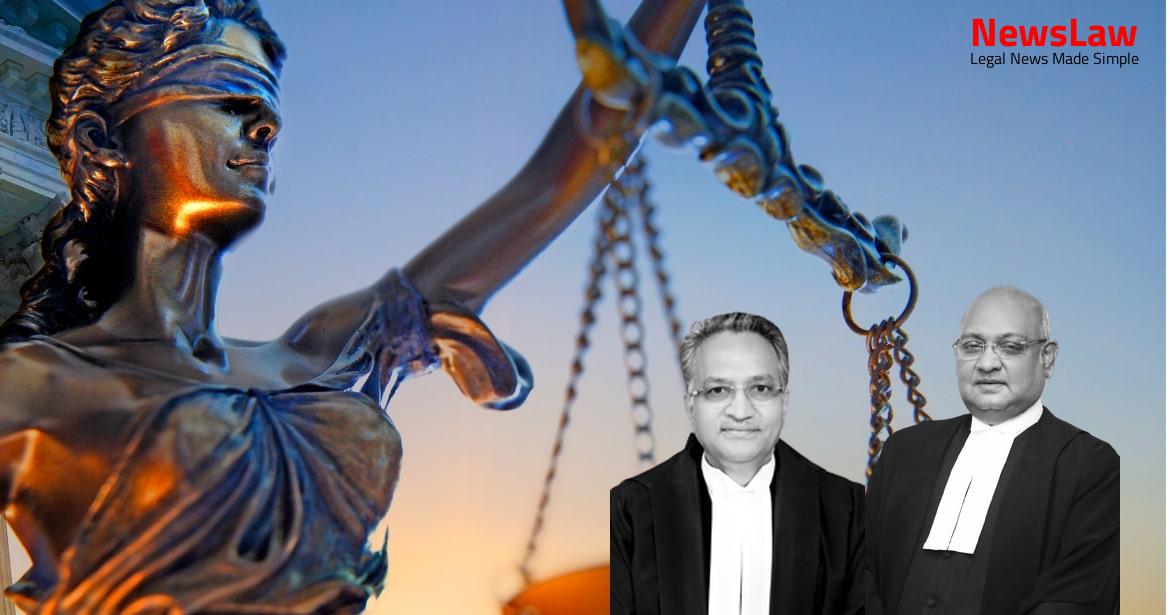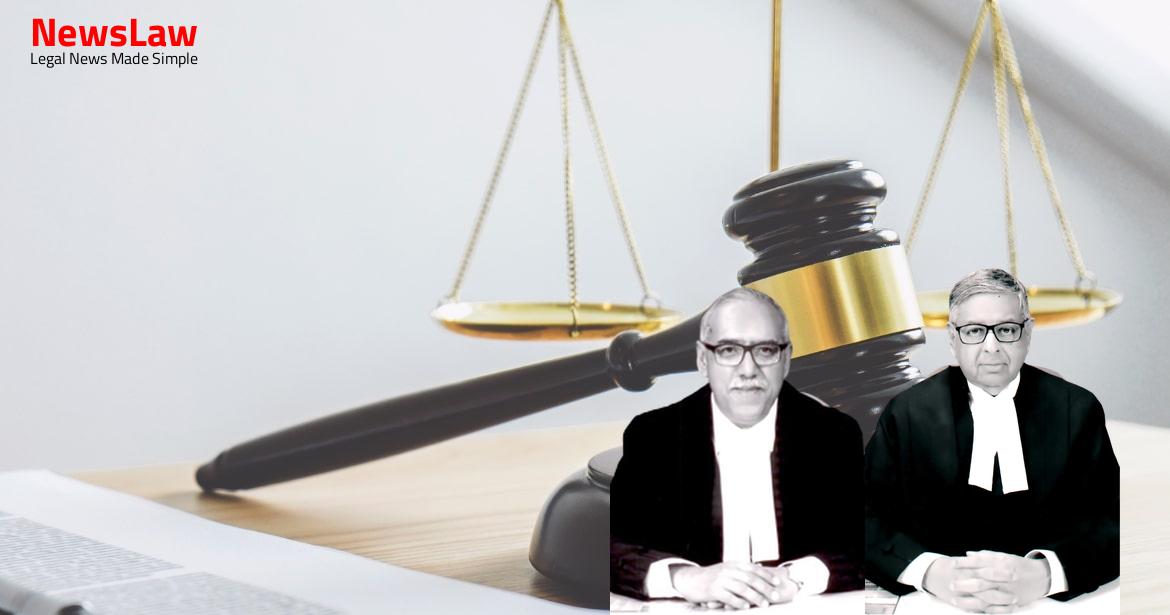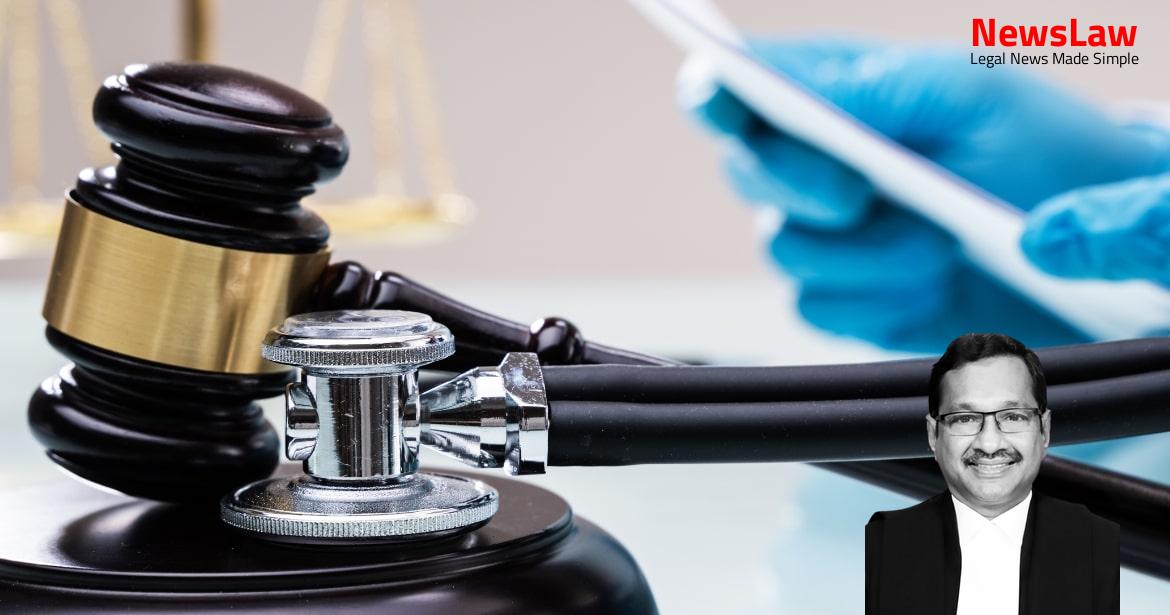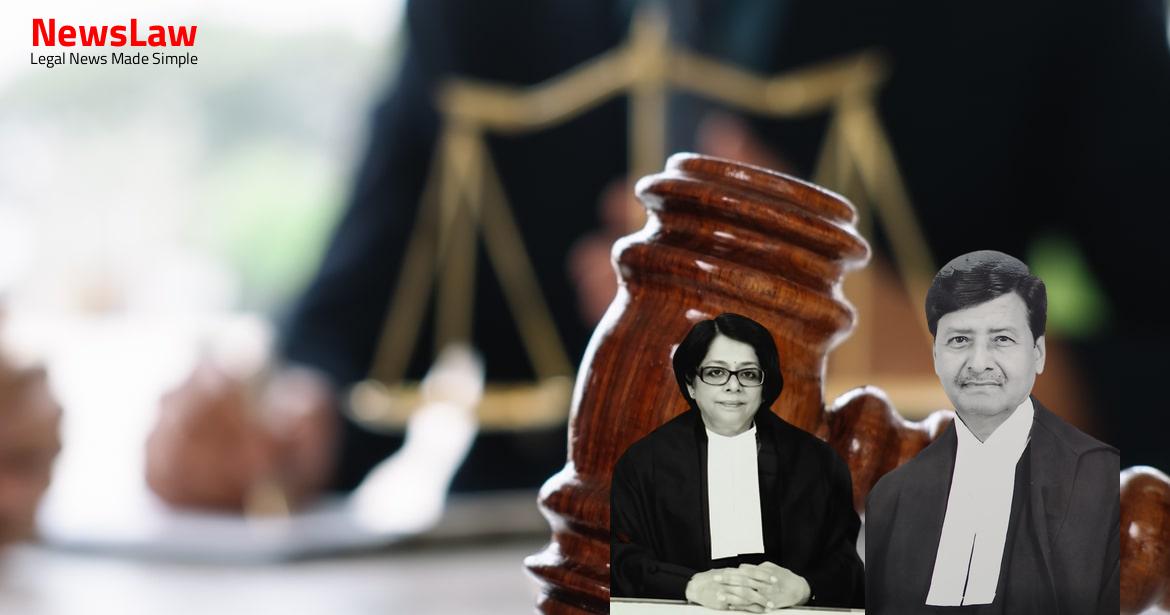Explore the complexities of a probate dispute as the court meticulously examines the genuineness of a Will. In this case, the legal analysis scrutinizes suspicious circumstances surrounding the document to determine its authenticity. The burden of proof, examination of witnesses, and adherence to legal provisions underpin the court’s decision-making process. Stay tuned to unravel the intricacies of probate law and the critical role of the judiciary in upholding testamentary intentions.
Facts
- The testator, Late Sri Sangappa, executed a Will on 20.05.1991, bequeathing properties to the plaintiffs.
- The plaintiffs sought declaration against a trust created by the defendants and injunction against them.
- The relationship between the deceased testator and the defendants was not cordial, but he still left a house to one of the defendants.
- The testator had executed a Will in 1974, canceled it in 1990, and then executed the disputed Will in 1991.
- The High Court found discrepancies in the Will and declared it non-genuine.
- Various witnesses, including the testator’s father, attesting witnesses, and an advocate, were involved in the case.
- The defendants refuted the genuineness of the Will and challenged the plaintiffs’ motives.
- Concerns were raised about the trust created by the defendants and its effect on the plaintiffs’ rights.
- The trust in question was named after the testator, and there were differences in views among the defendants regarding the trust.
- Overall, the authenticity of the Will, the intentions of the testator, and the validity of the trust were key points of contention.
- The Trial Court found in favor of the plaintiffs on issue numbers 1 and 6 to 10, determining that the deceased did not intend to leave anything to defendants.
- The Trial Court noted that certain inconsistencies or lack of clear directions in the Will were not sufficient to discredit the entire document.
- The High Court, however, reversed the Trial Court’s decision on the genuineness of the Will after noting discrepancies and unnatural circumstances, concluding that it was not genuine.
- The Trial Court held that the deceased wrote the Will with the intention of bequeathing his properties to the legatees.
- The Trial Court also stated that the Will was executed in accordance with relevant laws and the plaintiffs had proven their rights under it.
- The Trial Court further observed that the deceased’s actions, including taking help from a distant relative to write the Will, indicated a lack of lasting love between the deceased and the defendants.
- The High Court set aside the Trial Court’s judgment and decree after finding the Will not genuine.
- The Trial Court also noted charitable bequests in the Will, showing the deceased’s intent to give properties to charitable purposes.
Also Read: Analysis of Suspicious Circumstances in Probate Proceedings
Issue
- The pivotal question in this case is whether the deceased Sangappa bequeathed the suit properties in favor of the plaintiffs under the Will dated 20.05.1991.
- The Trial Court framed several issues for determination including the validity of the Will, joint business claims by defendants, maintainability of the suit, valuation, and declaration of trust legality.
- One key issue to be examined is the High Court’s decision on the contested Will’s genuineness.
- The High Court also considered awarding exemplary costs to the defendants.
- The Trial Court’s decision on the Will’s validity and the joint business claims are crucial factors in this case.
Also Read: Limitation Laws in Insolvency Proceedings
Arguments
- The learned counsel for the appellant contends that the testator was of sound mind while executing the Will as required by Section 59 of the Indian Succession Act.
- Witnesses PW-3 and PW-4 testified that the testator showed them the typed Will and signed it, fulfilling the requirements of Section 68 of the Evidence Act.
- Reference to the case of H. Venkatachala Iyengar v. B.N. Thimmajamma was made to support the fulfillment of legal requirements in executing the Will.
- The counsel argues that all suspicious circumstances regarding the Will have been dispelled by the appellants.
- The High Court is criticized for setting aside the Trial Court’s findings based on consistent evidence of witnesses who attested the Will.
- The intention of the testator in the Will is deemed clear from the handwritten draft and the identification of properties based on boundaries, as pointed out by the counsel.
- Legal precedent regarding exclusion of legal heirs and the identification of the testator’s signature by witnesses are highlighted in support of the appeal.
- The contention that the document in question was not drawn on blank signed papers is emphasized, referencing the case of Mahesh Kumar (dead) by LRs v. Vinod Kumar and Ors.
- PW-5 and defendant No 7’s identification of the testator’s signature is also mentioned as supporting evidence.
- Learned counsel for the contesting respondents supported the High Court judgement.
- The respondents consistently argued that the propounded Will was a fabricated document.
- The respondents did raise the objection about the authenticity of the Will.
- Counsel referred to the case of K. Laxmanan v. Thekkayil Padmini and Ors.
Also Read: Interpretation of Tax Incentive Provision
Analysis
- The Trial Court and the High Court examined various abnormal, suspicious, and unusual features of the document in question.
- Suspicious circumstances identified included discrepancies in signatures, use of different pens, and missing signatures on certain pages.
- The Trial Court dismissed suspicions raised by the defendants and accepted the Will, while the High Court reversed this decision.
- The High Court found the discrepancies in the document to be significant and indicative of potential fabrication.
- The High Court observed that the unusual features of the document cast doubt on its authenticity and suggested possible foul play.
- The Trial Court failed to consider certain key suspicious features noted by the High Court, leading to an incorrect decision.
- The High Court’s analysis of the document’s discrepancies led to the conclusion that the Will was not genuine.
- The High Court noted the importance of examining suspicious circumstances surrounding the execution of a Will and the need to satisfy judicial conscience.
- Issues such as the use of different pens, missing signatures, and incomplete drafts were deemed highly suspicious and indicative of potential fraud or fabrication.
- Overall, the High Court’s detailed analysis of the abnormal features in the document supported the decision to reject the Will as genuine.
- Section 59 of the Succession Act allows persons of sound mind, not minors, to dispose of their property by Will.
- Wills must be attested by two or more witnesses as per Section 63 of the Succession Act.
- Chapter VI of the Succession Act provides detailed rules for the construction of Wills, emphasizing the importance of honoring the testator’s intentions.
- Section 68 outlines the proof required for the execution of documents as per the law.
- The execution of unprivileged Wills is detailed in Section 63, with specific rules for the testator’s signature and attestation by witnesses.
- Rule 23A in Order XLI CPC deals with the remand of cases by the Appellate Court, specifying procedures for evidence and trial after remand.
- The court expects all legitimate suspicion to be completely removed before accepting a document as the last Will of the testator.
- If the propounder of the Will benefits substantially from its execution, suspicion arises and must be removed with clear and satisfactory evidence.
- Excluding or granting a lesser share to natural heirs, without additional suspicious circumstances, is not inherently considered suspicious, especially if the bequest is made in favor of an offspring.
- The burden of proof lies on the propounder of the Will to explain any suspicious circumstances to the satisfaction of the court.
- Section 68 of the Indian Evidence Act mandates examination of one attesting witness in proof of a Will.
- The propounder must prove the legality of execution and genuineness of the Will by establishing the absence of suspicious circumstances, demonstrating testamentary capacity, and verifying the testator’s signature as required by law.
- In case of suspicious circumstances, the propounder must provide a convincing explanation to the court before the Will is accepted as genuine.
- The judicial mind must remain open, vigilant, cautious, and circumspect while evaluating Wills, even in situations of suspicion.
- The High Court rightly interfered with the decision of the Trial Court regarding the genuineness of the document in question.
- The document in question was held to not be the genuine Will of the deceased Sangappa.
- There was no valid reason for the High Court to remand the case to the Trial Court.
- The appeal has been dismissed, and each party is to bear their own costs throughout.
Decision
- The court has the authority to remand cases in other situations as well.
- Remand may be necessary in cases where further investigation or evidence is required.
- Remanding a case allows for a fair and just outcome to be reached.
- The decision to remand a case should be made carefully and with consideration to the circumstances involved.
Case Title: SHIVAKUMAR Vs. SHARANABASAPPA (2020 INSC 349)
Case Number: C.A. No.-006076-006076 / 2009



